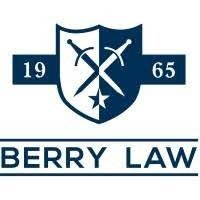Best White Collar Crime Lawyers in Omaha
Share your needs with us, get contacted by law firms.
Free. Takes 2 min.
List of the best lawyers in Omaha, United States
About White Collar Crime Law in Omaha, United States
White collar crime is a non-violent criminal offense typically committed in a business or professional setting that uses deceit or concealment for financial gain. In Omaha, United States, these crimes usually involve complex legal and factual issues. Embezzlement, federal fraud, tax evasion, mortgage fraud, securities fraud, and money laundering, are prevalent forms of white collar crimes in Omaha.
Why You May Need a Lawyer
Legal matters involving white collar crimes are typically intricate and filled with detailed processes and formalities. If you're under investigation by any federal or state regulatory agency, an experienced lawyer can present your side of the story to the investigators and potentially avert charges. A lawyer who is specialized in white collar crime can defend your rights, protect your reputation, and work towards minimizing any criminal charges and minimizing the damage in case you're found guilty.
Local Laws Overview
Omaha follows both federal and state laws when prosecuting white collar crimes. Sentences can vary greatly and are generally tied to the financial gain or loss from the crime. Nebraska Revised Statute 28-814, for example, addresses issues pertaining to criminal fraud with penalties up to twenty years imprisonment depending on the severity of the crime. Additionally, the severity of punishment can escalate if the crime is committed against a vulnerable adult or has crossed inter-state lines, which might invoke federal law enforcement attention.
Frequently Asked Questions
What is the statute of limitations on white collar crime in Omaha?
The statute of limitations for white collar crimes in Nebraska can vary significantly depending on the specific nature of the crime. Generally, it ranges from three to five years, but certain crimes, notably frauds related to financial institutions, can have longer periods.
Can white collar crimes result in imprisonment?
Yes, depending on the severity and specifics of the crime, sentences can range from probation to extensive imprisonment, often coupled with substantial fines.
What is the difference between federal and state white collar crime?
The key difference often lies in the jurisdiction of the law enforcement and courts engaged in the investigation and prosecution. Crimes crossing inter-state boundaries or involving federal institutions typically get prosecuted at the federal level.
Are there any defenses for white collar crimes?
Defenses would largely depend on the specifics of the case. However, some defenses can include lack of intent to commit fraud, incapacity, entrapment, or non-fraudulent statement.
I am only under investigation; should I hire a lawyer?
Yes, it's advisable to seek legal representation even at the investigation stage. A knowledgeable lawyer can often help in presenting your side of the story to investigators and possibly prevent charges from being filed.
Additional Resources
Some additional resources include the Federal Trade Commission (FTC), the Financial Crimes Enforcement Network (FinCEN), and the Nebraska Department of Justice. They provide comprehensive national and local information related to various forms of white collar crimes and their statutory regulations.
Next Steps
If you are in need of legal assistance related to a white collar crime, it's advised to promptly contact and consult a knowledgeable criminal defense attorney who specializes in this area of law. Initial consultations are usually confidential and will help you better understand your situation, legal rights, and the best course of action.
Lawzana helps you find the best lawyers and law firms in Omaha through a curated and pre-screened list of qualified legal professionals. Our platform offers rankings and detailed profiles of attorneys and law firms, allowing you to compare based on practice areas, including White Collar Crime, experience, and client feedback.
Each profile includes a description of the firm's areas of practice, client reviews, team members and partners, year of establishment, spoken languages, office locations, contact information, social media presence, and any published articles or resources. Most firms on our platform speak English and are experienced in both local and international legal matters.
Get a quote from top-rated law firms in Omaha, United States — quickly, securely, and without unnecessary hassle.
Disclaimer:
The information provided on this page is for general informational purposes only and does not constitute legal advice. While we strive to ensure the accuracy and relevance of the content, legal information may change over time, and interpretations of the law can vary. You should always consult with a qualified legal professional for advice specific to your situation.
We disclaim all liability for actions taken or not taken based on the content of this page. If you believe any information is incorrect or outdated, please contact us, and we will review and update it where appropriate.








